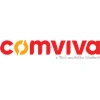Zouhair runs a tea stall in the busy street market in Hargeisa, Somaliland. What he shares with thousands of other merchants/small vendors in Somaliland is his ability and more importantly willingness to accept mobile money. Anyone buying tea/snacks from Zouhair can easily pay using his mobile no matter how small the payment is. Zouhair enjoys the convenience it offers; avoid managing small change, quick transaction and happy customers.
Somtel and Zaad telecom has achieved this enviable feat in Somaliland, where ecosystem payment (merchant and retail payments) has a huge share in all mobile money transactions. Mobile money in Somaliland has gone beyond the widely accepted core mobile money use-cases globally viz. airtime top-ups, p2p transfers, cash-in and cash-out. Here are the few statistics to fathom the widespread adoption of mobile money in Somaliland leading to near cashless economy.
- 40% of the GSM subscribers are the active users of mobile money
- Active users perform 30 transactions a month on average (global average is 8.5)
- 26% of the population reported using mobile money to pay bills
- 43 registered customers per merchant indicating huge merchant base.
In this article, I have highlighted the enabling conditions and success factors which have led to this near ideal epitome of a MNO lead mobile money deployment. There are two major telecom players in Somaliland, Telesom and Somtel and both of them has their mobile money offerings. Telesom is the leading MNO in Somaliland with close to 1 million mobile connections (about 85% market share). Since the beginning of its launch, Telesoms strategy has been to develop the mobile money ecosystem around Telesom GSM offering. It focused on two critical aspects of mobile money: getting the money into the MM accounts and keeping it there. It has succeeded in convincing the users to keep money in their mobile accounts by building an ecosystem of salary payers and merchants. The idea is to eliminate the frequent need to cash-in and cash-out. Users have regular incoming money in their mobile accounts which they will use to pay for daily goods and services and also maintain a balance. It is worthwhile to mention here that Telecom is one of the most recognizable and trusted brands in Somaliland and is one of the biggest employers.
The legal tender in Somaliland is the shilling, but mobile money deals in US dollars. It has helped the telecom companies to on-board private companies, NGOs, development workers, who get paid in dollars to accept direct salary transfers in their mobile money account. To make the mobile money all encompassing which is critical to sustain the ecosystem, Telesom also launched Salaam, an Islamic financial institution offering services including savings accounts, current accounts and small loans accessible through mobile money.
Further, there are three distinct aspects which are unique to mobile money offering by Telesom. These are:
- Mobile money services are launched free. Mobile money was introduced in Somaliland as a retention tool for GSM subscribers. It also helped in popularizing the service leading to quick adoption. Within 2 years, 40% of GSM subscribers were actively using Zaad.
- Leveraging in-house agents: This was the major departure from the traditional way of doing things. Telesom worked with owned retail network with salaried employees and thus saved huge costs in channel commissions which partly helped it to reduce the cost to customers.
- Merchant acquisition from the start: Instead of investing on Agent recruitment, Telesom focused on building the merchant network from the beginning. This has resulted in Merchants being the face of mobile money in Somaliland providing regular connect with customers. This is significant as normally an active customer faces agents 3-4 times a month while it is very high in case of merchant-customer connect where daily goods and services are being transacted.
Telesoms decision to make the services free was a strategic decision taken to achieve twin objectives of educating the customer and to retain its GSM subscriber base. Somaliland has four telecom operators fiercely competing for the business resulting in some of the worlds cheapest mobile rates. Telesom recovered its initial investments into Zaad through indirect revenues.
- Over 70% of the airtime was sold over mobile money resulting in huge airtime distribution savings.
- Telesom registered an increase of airtime sales of 20% over 3 years on average
- It managed to reduce customer churn from 5% to 2% since launch of Zaad
This article would be incomplete without highlighting the importance of commitment from Organizations top management towards mobile money. It was quite evident in Zaads case where an open book approach to investment was adopted to take the services off the ground. It was treated as a separate business unit and significant investments were committed. Telesom intentions were manifested again when it decided to pay salaries to its employees exclusively in their mobile account two months before the services were launched commercially. This helped Telesom to convince other companies to start paying their employees on mobile money accounts. This has solved the problem of cashing-in to mobile money account and simultaneously it provided avenues where one can spend the money without cashing-out.
